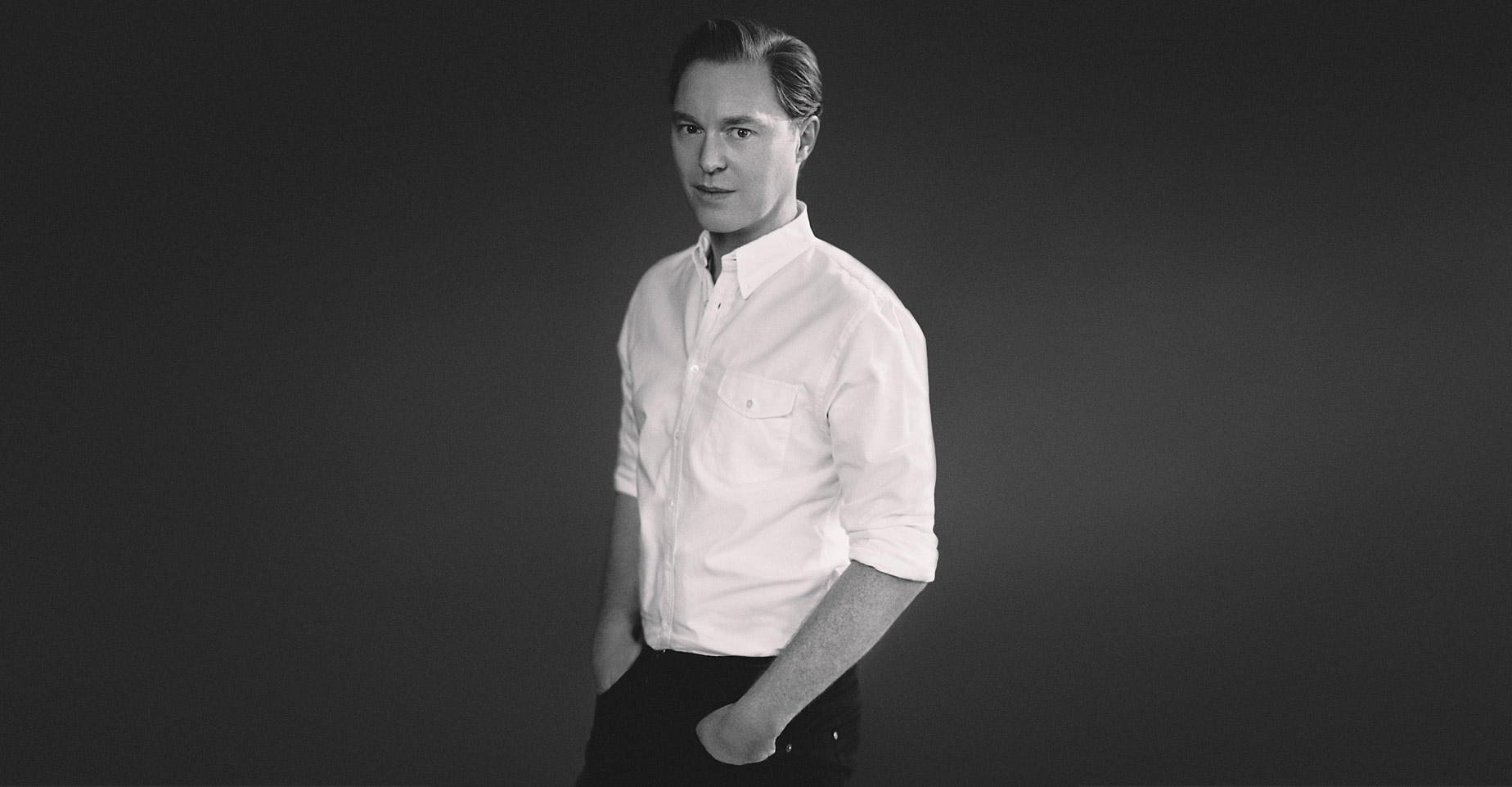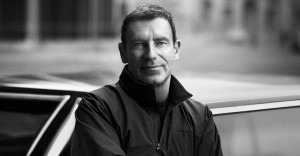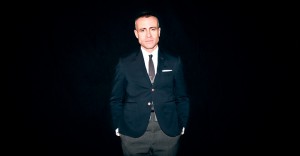Mr. Vevers, do you remember the first piece of clothing you were really obsessed with?
Neon socks! I was probably eight or nine, and I’d seen them in a shop in Carlisle in the UK where I grew up and I had to have them in all the colors. I remember my grandmother giving me money for them and I ran to the store to get them! (Laughs) I still love neon! You can’t help but be influenced by the things you grew up with.
The past seems to play an important role in your work as a fashion designer.
Even now, I’m looking back as much as I’m looking at today. I think actually what I’m fascinated by is the pop culture and cool culture and youth culture that was developing during my youth. I connect to those things very quickly. “Cool” is a word that I’ve always been obsessed with, especially in my work.
How do you define cool?
What’s interesting is that it’s so open to interpretation and it can mean something different to so many people. Even different countries have different interpretations of it. You know, in France it’s chic… In America it’s cool. The established codes are always changing and shifting, so if you look at images of people all around the world today, they’re wearing sneakers and jeans and sweatshirts and t-shirts and backpacks. These are functional pieces. They were created as work wear.
American work wear, mostly.
Exactly and now they go with everything. There’s something so fundamentally different about American style that I think has really been embraced. Blue collar and sportswear in fashion is not a typical reference for us in the UK and Europe, but it’s very typical in America. I like that a lot of these references are kind of anti-fashion, quite at the opposite end of traditional fashion references. Luxury doesn’t mean what it used to. Nowadays luxury can even mean a sneaker or a sweatshirt.
Was the concept of American cool something that appealed to you about taking over a brand like Coach?
Definitely. That idea of American cool became the idea essentially. I’m influenced a lot by my perception of America when I was growing up. It’s still very exotic to me. I’ve spent most of my career in Europe: Paris, Milan, London, even Madrid… So, that was actually a big part of what made taking over at Coach so appealing — how different a New York-based American heritage brand really is from the UK and European labels I was used to.
Is it true that since relocating to New York, you’ve explored America extensively by train in order to get to know the country first hand?
Yes and it’s one of the things people are really shocked by! Americans are always like, “How? Why? Where?” I’ve done a train trip in America for the last seven summer vacations: New York to Chicago, Chicago to Seattle, Seattle to LA, to Memphis, to Charleston… I love the train, the movement of it. It’s relaxing, you never feel rushed. I never get bored on the train either, I love looking out the side and watching things pass by. I’m kind of obsessed with it!
Is this something you’ve done all your life?
I used to travel from Madrid to Paris on the overnight train. There’s also a sleeper in the UK which I’ve taken a few times, from Scotland to England. But America is one of those places where you can go on vast journeys and discover it all. People forget that a country is more than just its cities; it has towns and villages and landscapes… That’s what appeals to me. There’s something about the further you travel, the better it seems. I always think that. I usually travel to start a new season because I think it clears your head.
When you took over Coach, for example, what was the starting point?
You try to go in with a clear idea and a clear story already. At Coach the strongest idea was essentially about embracing the values of the brand wholeheartedly and turning that into fashion and then making those things feel current. I wanted it to feel very much about today, and for the next generation. It was an obsession when I joined Coach for it to feel completely contemporary. Those were the real fundamentals of it. I was determined not to rehash heritage.
But you have to maintain the brand’s DNA somehow, don’t you?
Right. What I love is that it’s about understanding what makes a brand different. I do really love brands and all their quirks and what makes them different. That’s what the heritage gives me. It’s a touchstone, asking, “Why is it different? Why do people care about the brand?” I mean the fact that it’s still here means there’s something about the brand that people like. “Have we lost that connection? Do we need to refresh it?” The heritage is a touchstone much more than any physical real things though.
You seem to embrace change.
That’s why I like fashion: because it is about change. But for me, the rate of change depends on how long it takes for that idea to get out there and be understood. At that point, do you have to then change it again and do something different because you’ve got to keep evolving? At what point do you feel you’ve achieved it and you can move on? I think you usually have to start thinking, “So what’s next?”
Your changes at Coach has been very well received, and you’ve famously revived other tired heritage brands like Mulberry and Loewe. Do you work well under that pressure?
It must be something I’m drawn to. I don’t think I’ve necessarily gone in like, “Oh I’m the person who can turn this around!” But I do like to go in where there’s a really big appetite for change. I enjoy a big shift. Of course, sometimes it’s like, “God, this is much harder than I thought it would be!” Or, “It’s taking longer than I thought it would.” But that’s the reality of it.
How do you know when you’ve found an idea that works?
I think something stirs and you start fighting for the idea. You go with your gut instincts where you’re like, “I think there’s something there!” Like when I’m sketching and I do hundreds of versions of a bag and all of a sudden, I spot something. But ultimately, it of course comes to the customer to decide if it works or not. Whether a certain bag is a phenomenon or not comes down to the design of the bag and the response it gets.
Is fashion ultimately about emotion?
People get emotional about fashion! I’ve had people say to me, “I couldn’t pay my rent, but I had to have the bag,” you know? That’s ultimately the power of those pieces is when people get emotional about them. My head is definitely in that place. It’s all about emotion.
Return to Top

Short Profile
Name: Stuart VeversDOB: 17 November 1973
Place of birth: Doncaster, Yorkshire, UK
Occupation: Fashion designer





















Comments
write a comment, read comments